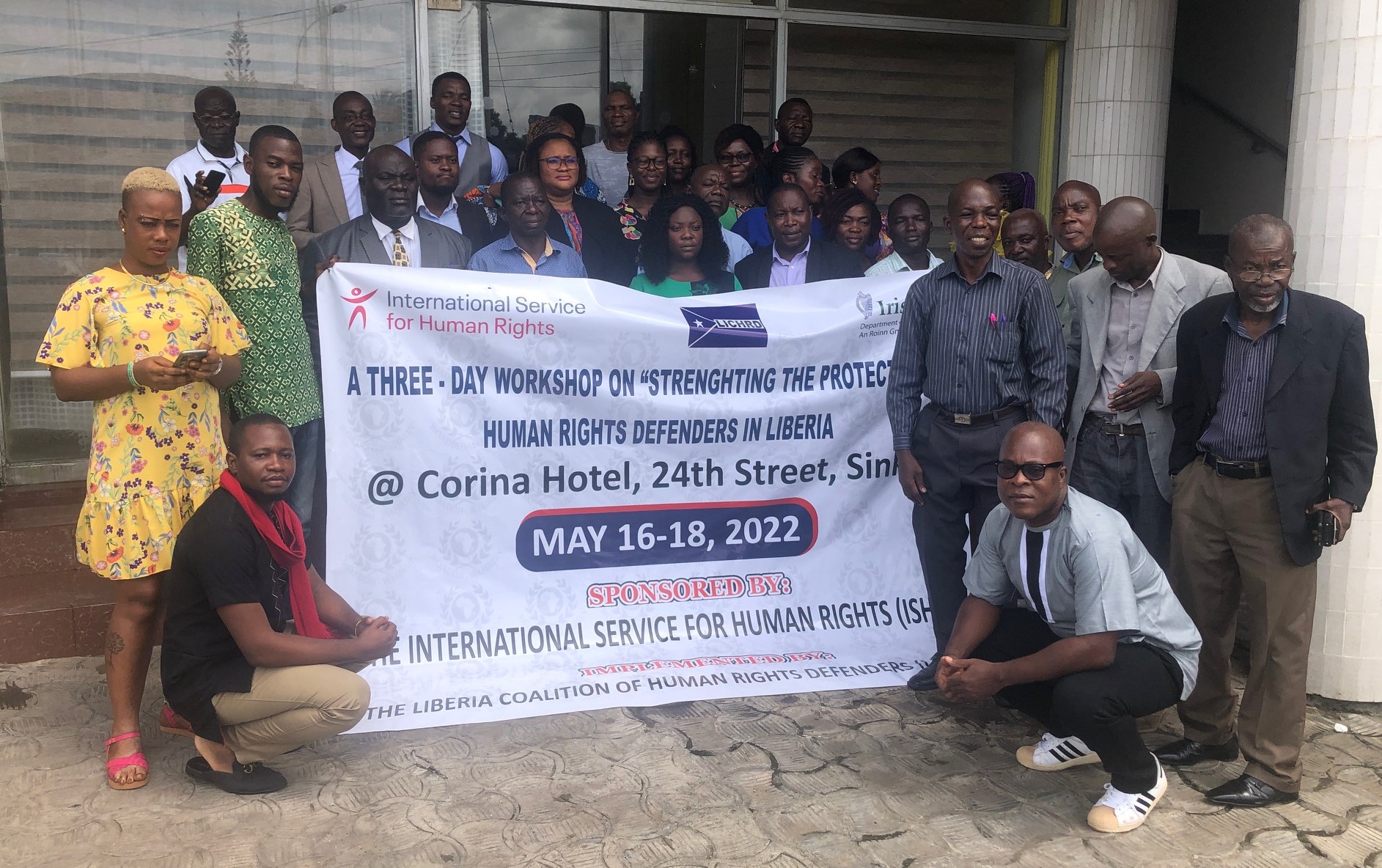© ISHR

Liberia Coalition promoting the rights of defenders
The Liberia Coalition for human rights defenders was established in 2002. With the election of its new Board in 2020 and a new leadership, the Coalition aims to further strengthen its capacity and visibility and work in the country to ensure defenders are protected.
From 16 to 18 May, the Liberia Coalition for human rights defenders (LICHRD) and ISHR organised a three-day workshop to bring together defenders from Liberia to assess the situation of human rights defenders in the country, their existing protection, the gaps and how the coalition can strengthen its action to ensure defenders are protected. Defenders with experience working on a range of issues, including women and LGBTIQ rights, and interest in working for the promotion of the rights of human rights defenders and the protection of civil society space attended the workshop.
During those three days, participants shared lessons learned, identify opportunities in the national context and defined strategies to advance the protection of defenders in general, and more specifically ahead of the upcoming election period.
Defenders identified the stigma women face for defending human rights and the lack of established mechanism or procedures in place to protect defenders, as major risks for defenders in Liberia. Particularly, LGBTI defenders don’t only feel a lack of support from the population but from defenders’ networks as well. The day continued with the presentation of a policy for the protection of defenders in Liberia currently being worked on by civil society by Adama Dempster from the Civil Society Human Rights Advocacy Platform of Liberia. “In Liberia, defenders are seen as outsiders who want to disrupt the peace. They are constantly at risk. They need to feel supported and protected. Adopting this policy would be a huge step towards achieving that” said Neidoteh Boye Torbor, Chairman of the LICHRD.
On the second day, the discussion focused on the coalition, its structure, the recent institutional changes including of leadership, its activities as well as its needs to better protect defenders in Liberia. The coalition is currently going through a rebranding, a relaunching campaign and is increasing its networking activities.
“The coalition is vital to be the voice of those who can’t speak. To do so, it needs to be known and supported by civil society in the country” said Adélaïde Etong Kame, ISHR’s Africa Programme Manager.
